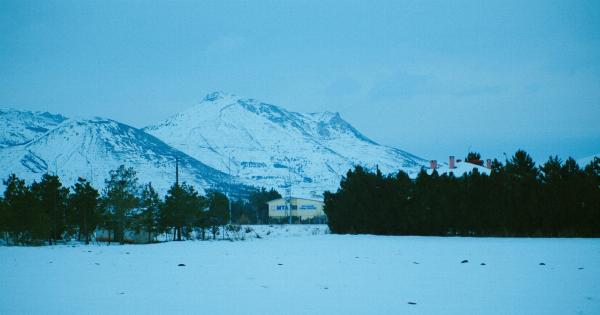Winter brings forth a picturesque landscape blanketed in snow, drawing many individuals to embrace the beauty of this season. However, alongside all the joy and marvel, winter also comes with its fair share of health challenges.
One such concern is the occurrence of gastric disorders during the snow season. In this article, we will delve into this topic and explore the causes, symptoms, and preventive measures for snow season gastric disorder, ensuring you can revel in the winter wonderland while taking care of your digestive health.
Understanding Snow Season Gastric Disorder
Snow season gastric disorder refers to a range of digestive issues and discomfort that individuals may experience during the wintertime.
Although it is not a clinically recognized medical condition, many people notice a correlation between the onset of winter and the occurrence of digestive disturbances.
Several factors contribute to the development of gastric disorders during the snow season. Let’s explore some of the major causes:.
1. Dietary Changes
During the snow season, people often indulge in heavy, rich, and high-calorie foods. This shift in dietary preferences, coupled with decreased physical activity, can lead to slower digestion and increased gastric distress.
Furthermore, the consumption of large meals and overindulgence in alcohol can trigger digestive discomfort.
2. Reduced Hydration
In colder temperatures, individuals tend to drink less water as the sensation of thirst is dulled. This reduced water intake can cause dehydration, which can lead to various gastric issues such as constipation, bloating, and indigestion.
3. Lack of Physical Activity
During the snow season, outdoor activities often decrease due to the frigid temperatures and limited mobility on icy surfaces. This lack of physical activity can slow down digestion and lead to digestive disturbances.
4. Seasonal Allergies
Winter can trigger allergies in certain individuals, leading to post-nasal drip, congestion, and the swallowing of excess mucus. These factors can contribute to gastric discomfort and acid reflux.
5. Holiday Stress
The festive season, packed with holiday preparations and gatherings, can bring about increased stress levels. Stress, in turn, can disrupt the normal functioning of the digestive system, leading to gastric disorders.
Recognizing the Symptoms
It is essential to be familiar with the symptoms of snow season gastric disorder in order to seek appropriate treatment. The key symptoms to watch out for include:.
1. Abdominal Discomfort
Individuals may experience sensations of pain, cramping, bloating, or discomfort in the abdominal area. These sensations may vary in intensity and duration.
2. Heartburn
Heartburn, often described as a burning sensation in the chest, is a common symptom of snow season gastric disorder. It occurs when stomach acid flows back into the esophagus, causing discomfort.
3. Nausea and Vomiting
Some people may experience feelings of nausea or may even vomit due to the disturbance in their digestive system.
4. Diarrhea or Constipation
Digestive issues such as diarrhea or constipation can be experienced by individuals with snow season gastric disorder. These symptoms occur due to the altered digestion process.
Preventing Snow Season Gastric Disorder
While the challenges of snow season gastric disorder may seem daunting, there are several preventive measures you can adopt to minimize the risk and ensure a healthy winter season:.
1. Maintain a Balanced Diet
Focus on consuming a diet that is rich in fiber, nutrients, and antioxidants. Incorporating fruits, vegetables, whole grains, and lean proteins will help promote healthy digestion and overall gastric health.
2. Stay Hydrated
Remember to drink plenty of water throughout the day, even if you do not feel thirsty. Adequate hydration is essential for maintaining optimal digestive function.
3. Engage in Physical Activity
Be creative and find indoor activities or exercises that you can enjoy during the snow season. Regular physical movement helps stimulate digestion and prevents gastric discomfort.
4. Manage Stress Levels
Practice stress-reducing techniques such as meditation, deep breathing exercises, or engaging in hobbies that bring you joy. Effective stress management can minimize the impact of stress on your digestive system.
5. Avoid Excessive Alcohol Consumption
While it’s tempting to indulge in a few drinks during winter celebrations, excessive alcohol consumption can aggravate gastric issues. Limit your alcohol intake and opt for non-alcoholic alternatives whenever possible.
When to Seek Medical Help
If your snow season gastric disorder symptoms persist, worsen, or significantly impact your daily life, it is crucial to consult a healthcare professional.
They can identify any underlying conditions and provide appropriate medical advice and treatment options.
A Healthy Snow Season for All
With a better understanding of snow season gastric disorder, its causes, symptoms, and preventive methods, you can now fully embrace the wonders of winter without compromising your digestive health.
By making simple lifestyle adjustments and practicing self-care, you can enjoy the snowy season to its fullest, all while keeping your gastric system happy and content.





























